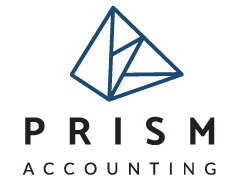The Treasurer delivered the 2022-2023 Federal Budget on Tuesday 29 March 2022.
Being a pre-election budget, it heavily focused on short-term measures providing a relief for the cost of living pressures as a result of pandemic, natural disasters and global issues.
Below are the key measures in the Budget that are likely to affect doctors and medical businesses.
Technology Investment Boost
Medical businesses with aggregated annual turnover less than $50 million will be able to claim a bonus 20% tax deduction for business expenses and depreciating assets that support digital uptake. such as cloud service subscription, portable payment devices, cyber security, accounting and e-invoicing software and web design.
The Technology Investment Boost will apply to eligible expenditure incurred between 7:30pm (AEDT) on 29 March 2022 (Budget night) and 30 June 2023. It will be capped at $100,000 of the expenditure per year.
If the expenditure is incurred by 30 June 2022, the extra 20% boost will be claimable in tax returns for the following financial year (2023). If the expenditure is incurred between 1 July 2022 and 30 June 2023, the boost will be claimable for the same financial year in which the expenditure is incurred.
Skills and Training Boost
Medical businesses with aggregated annual turnover of less than $50 million will be able to deduct an additional 20 per cent of expenditure incurred on external training courses provided to their employees.
The Skills and Training Boost will apply to eligible expenditure incurred between 7:30pm (AEDT) on 29 March 2022 (Budget night) and 30 June 2024. To be eligible for the boost, the external training courses will need to be provided to employees in Australia or online, and delivered by entities registered in Australia. Some expenditure will be excluded, including in-house or on-the-job training and expenditure on external training courses for persons other than employees.
The boost amount for eligible expenditure incurred by 30 June 2022 will be claimed in tax returns for the following financial year (2023). The boost for eligible expenditure incurred between 1 July 2022 and 30 June 2024, will be claimed for the financial year in which the expenditure is incurred.
Patent Box Regime expansion for medical and biotechnology innovations
The Patent Box Regime was introduced in the 2021-2022 Budget to stimulate medical and biotechnological innovation. The regime proposed that, from 1 July 2022, income derived by corporate entities from Australian patents in the medical and biotechnology sectors would be taxed at a concessional rate of 17% rather than the corporate tax rate for base rate entities of 25% or the full corporate tax rate of 30%.
Initially, only granted patents which were applied for after the 2021–22 Budget night were proposed to be eligible. In the 2022-2023 Budget, the Government announced that the regime will be extended to include patents granted or issued after 11 May 2021.
The Government will also now allow standard patents granted by IP Australia, utility patents issued by the United States Patent and Trademark Office (USPTO), and European patents granted under the European Patent Convention (EPC) to be eligible for the regime. However, concessional tax treatment under the patent box will only apply to the extent that the R&D occurred in Australia.
Low and Medium Income Tax Offset increase
Doctors with taxable income of less than $126,000 will benefit from additional $420 Cost of Living Tax Offset, which will increase the Low and Medium Income Tax Offset (LMITO) to a maximum of $1,500.
The maximum amount of LMITO is available to Australian tax residents with taxable income between $48,000 and $90,000. The offset is reduced by 3 cents for every dollar of income above $90,000 and phases out completely once the income is reached $126,000.
It is important to note that LMITO is a non-refundable tax offset, which means it can only reduce your tax to zero. Any excess offset amount is not refunded to you.
Tax Deductibility and FBT exemption for COVID-19 tests
The Government announced that the costs of taking a COVID-19 test to attend a place of work are tax deductible for individuals from 1 July 2021. In making these costs tax deductible, the Government also proposed to ensure Fringe Benefits Tax (FBT) will not be incurred by medical businesses where COVID-19 tests are provided to employees for this purpose.
Other 2022-2023 Budget measures
Other 2022-2023 Budget measures that may affect doctors and medical businesses include:
– Expansion of Home Guarantee Scheme for first home buyers by increasing the number of places per year
– Reducing Fuel Excise rate by half (from 44.2 to 22.1 cents per litre) for 6 months from 30 March to 28 September
– Enhancing Paid Parental Leave to provide more flexibility to working parents
– Expansion of Single Touch Payroll data sharing to allow the ATO to share data with State and Territory Revenue Offices
– Extension of the ATO’s Tax Avoidance Taskforce to target tax avoidance by private groups, trusts and high wealth individuals
– Making COVID-19 business grants non-assessable non-exempt until 30 June 2022
Learn more about 2022-2023 Federal Budget measures
If you have any questions about how these measures will affect you and your medical business, contact Prism Accounting to make an appointment with a Medical Accounting specialist.
Disclaimer: All the information provided on this website is of general nature and does not constitute tax, legal or financial advice. It does not take into account your personal circumstances and is not intended to replace consultation with a qualified professional.

